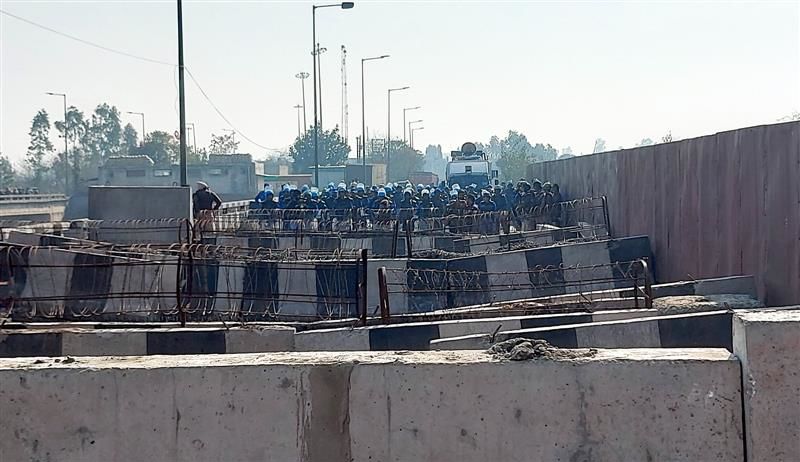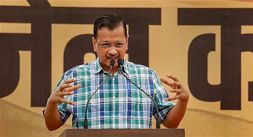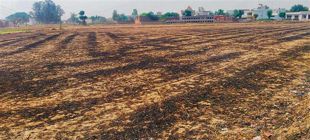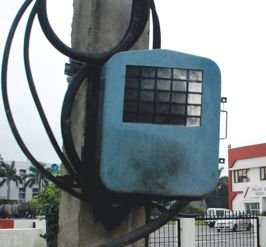
Barricades put up at the Shambhu border (Punjab-Haryana) in view of farmers' 'Dilli Chalo' march, in Patiala district on February 11, 2024. PTI
New Delhi/Chandigarh, February 11
Ahead of a proposed ‘Dilli Chalo’ march by farmer unions on Tuesday, authorities in Haryana and Delhi fortified borders with neighbouring states at many places by putting up concrete blocks, road spike barriers and barbed wires and deploying thousands of police personnel, besides imposing prohibitory orders.
While the Centre has invited farmer unions for another meeting to discuss their demands on February 12, the move to block borders to prevent the protesters from entering the National Capital drew flak from Opposition parties and farmer groups on Sunday.
Authorities, however, defended the restrictions, citing the 2020 agitation against the now-repealed three farm laws that had stretched to over a year.
The Samyukta Kisan Morcha (Non-Political) and several farmer associations, mostly from UP, Haryana and Punjab, have called the protest to press the Centre to accept their demands, including the enactment of a law to guarantee a minimum support price (MSP) for crops.
Congress leader Priyanka Gandhi Vadra shared a video of road spike barriers being placed on state borders and said, “Is laying nails-thorns in the path of farmers ‘amritkaal’ or ‘anyaykaal’?”
Punjab Chief Minister and AAP leader Bhagwant Mann likened the roads to enter Delhi and Haryana to the India-Pakistan border.
“I urge the Centre to hold talks with farmers and accept their genuine demands... There are as many wires put up on the roads (Punjab-Haryana borders) to go to Delhi as there are at the border with Pakistan,” said Mann.
The Samyukta Kisan Morcha (Non-Political) also slammed the blocking of roads.
“Why is the government scared? Huge barricading is being done. Is this democracy?” its leader Jagjit Singh Dallewal said.
“If the situation turns bad, it will be the responsibility of the Khattar government,” he said in a video message.
Prohibitory orders under section 144 were imposed in the northeast district of the national capital on Sunday, directing the police to make all efforts to prevent protestors from entering Delhi.
Barricades were also put up and police checking intensified along the Ghazipur border, one of the sites of the 2020-21 farmers’ stir.
“No one will be allowed to breach law and order situation,” an order issued by Deputy Commissioner of Police (northeast) Joy Tirkey said.
Haryana authorities have sealed the border with Punjab at Shambhu near Ambala. Elaborate arrangements are in place at the borders of Jind and Fatehabad districts to stop the march.
Apprehending the disturbance of peace, the Haryana government has also suspended mobile internet services and bulk SMS in seven districts - Ambala, Kurukshetra, Kaithal, Jind, Hisar, Fatehabad and Sirsa - from February 11 to 13.
Iron sheets have been installed along the two sides of the road on the Ghaggar flyover to prevent protesters from throwing police barricades off it.
Water cannons and anti-riot Vajra vehicles were stationed and the Ghaggar river bed below has been dug up. Pedestrians were seen crossing the shallow stream on foot.
Haryana Chief Minister Manohar Lal Khattar said all steps are being taken to maintain law and order.
“The kind of agitations they hold are not right in democracy and we have seen this last time. There are buses and trains but taking tractors, also tying some weapons at the front side of tractors and not stopping when asked (cannot be allowed),” he said.
In 2020, a large number of farmers from Punjab and nearby areas of Ambala gathered at the Shambhu border and broke police barriers to march towards Delhi.
The farmers, mainly from Punjab, Haryana and Uttar Pradesh, held a year-long sit-in on Delhi’s border points - Singhu, Tikri and Ghazipur - against the three central farm laws.
Dallewal said the government had “promised” a legal guarantee on minimum support price during the stir and the withdrawal of cases registered against farmers.
“Farmers were forced to move towards Delhi as their demands were not accepted by the Centre,” he said.
Farmer leader Sarwan Singh Pandher had on Saturday said the Centre has invited them for a meeting to discuss their demands on February 12.
He said three Union ministers - Piyush Goyal, Arjun Munda and Nityanand Rai - will arrive in Chandigarh on February 12 to hold talks with a delegation of the Samyukta Kisan Morcha (Non-Political) and the Kisan Mazdoor Morcha.
Bracing for the protest, Delhi police has deployed more than 5,000 personnel along the border with Haryana and UP.
“Keeping in view the kind of behaviour and adamant approach farmers showed during protests in the past, there is a possibility of mobilisation/ activities of farmers/supporters from their respective districts to Delhi along with tractor/trolleys/arms.
“Farmers will also come from Haryana, Punjab, UP, Rajasthan, Uttarakhand, MP and other possible areas,” the order by DCP Tirkey said.
The order prohibits any gathering at all borders between Delhi and Uttar Pradesh and nearby areas in the jurisdictional area of Northeast District and also the entry of tractors, trolleys or other vehicles carrying protestors in Delhi from Uttar Pradesh.
“We are in contact with our counterparts in Haryana, Punjab, and Uttar Pradesh... We have already installed barricades at different borders of Haryana and Uttar Pradesh. Police personnel will be in anti-riot gear,” said a senior Delhi Police officer.
Police have also made elaborate arrangements at Haryana’s borders with Punjab in Jind and Fatehabad districts to stop the march. In Fatehabad, concrete blocks and spike barriers have been placed on a road in the Jakhal area.
At the Tohana border in the district, authorities have placed sand-laden containers and concrete barricades and cemented three layers of nails on the road.
In Jind, two roads near the Haryana-Punjab border have been shut for vehicular movement and restrictions imposed on two more roads, a police official said on Sunday.
Police have also been holding meetings with sarpanch of villages and khap panchayats, asking them not to participate in the march.
Join Whatsapp Channel of The Tribune for latest updates.



























